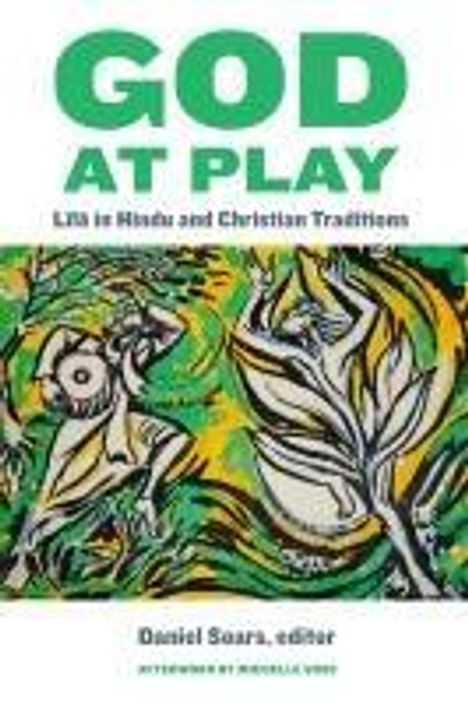God at Play, Gebunden
God at Play
- Līlā In Hindu and Christian Traditions
(soweit verfügbar beim Lieferanten)
- Herausgeber:
- Daniel Soars
- Verlag:
- Fordham University Press, 07/2025
- Einband:
- Gebunden
- Sprache:
- Englisch
- ISBN-13:
- 9781531510084
- Artikelnummer:
- 12000102
- Umfang:
- 320 Seiten
- Gewicht:
- 567 g
- Maße:
- 229 x 152 mm
- Stärke:
- 22 mm
- Erscheinungstermin:
- 1.7.2025
- Hinweis
-
Achtung: Artikel ist nicht in deutscher Sprache!
Weitere Ausgaben von God at Play |
Preis |
|---|---|
| Buch, Kartoniert / Broschiert, Englisch | EUR 51,15* |
Klappentext
**The first comparative treatment of the topic of l¿l¿in Hindu and Christian traditions, this volume explores what it means to consider divine and human action under the categories of play, wit, drama, grace, and compassion
God at Play presents a theological exploration of the multifaceted motif of l¿l¿ across diverse Hindu and Christian landscapes and its wide-ranging connections to divine and human creativity. Given its ubiquity in Hindu theologies and life-forms, l¿l¿ offers a rich comparative framework for exploring certain ways of understanding divine and human action as expressed in Hindu and Christian sacred texts, philosophical theology, and ritual practices.
Though l¿l¿ is often interpreted simply as "play," the essays in this volume reflect a far richer semantic and conceptual field, ranging from spontaneity and gratuitousness, through joy and humor, to mercy and compassion. By focusing on the different contexts in which l¿l¿ is found in Hindu traditions and resisting any uniform translation of the term, the contributors to this volume avoid the risk of using predominantly western or Christian categories to understand the Hindu other. The volume thus explores how l¿l¿ functions in a variety of distinctive philosophical, theological, and devotional ways across Hindu traditions, and listens for echoes in Christian understandings of the gratuitousness of the created order in relation to God.
God at Play is a genuine experiment in deep learning across traditions. Each chapter reflects on what is learned by taking *l¿l¿*as the category of comparison and invites the reader to think about what these conversations add, confirm, or change in relation to earlier twentieth-century scholarship on play-not least, in terms of what difference it might make to understand human life as an imitation and a participation in the divine life of a playful deity.


